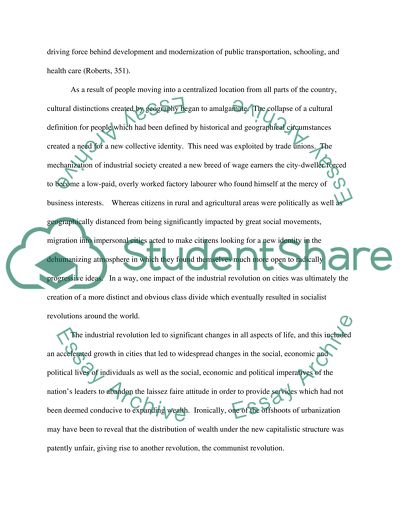The Impact of the Industrial Revolution on Cities since 1780 Essay. Retrieved from https://studentshare.org/history/1531694-the-impact-of-the-industrial-revolution-on-cities-since-1780
The Impact of the Industrial Revolution on Cities since 1780 Essay. https://studentshare.org/history/1531694-the-impact-of-the-industrial-revolution-on-cities-since-1780.


